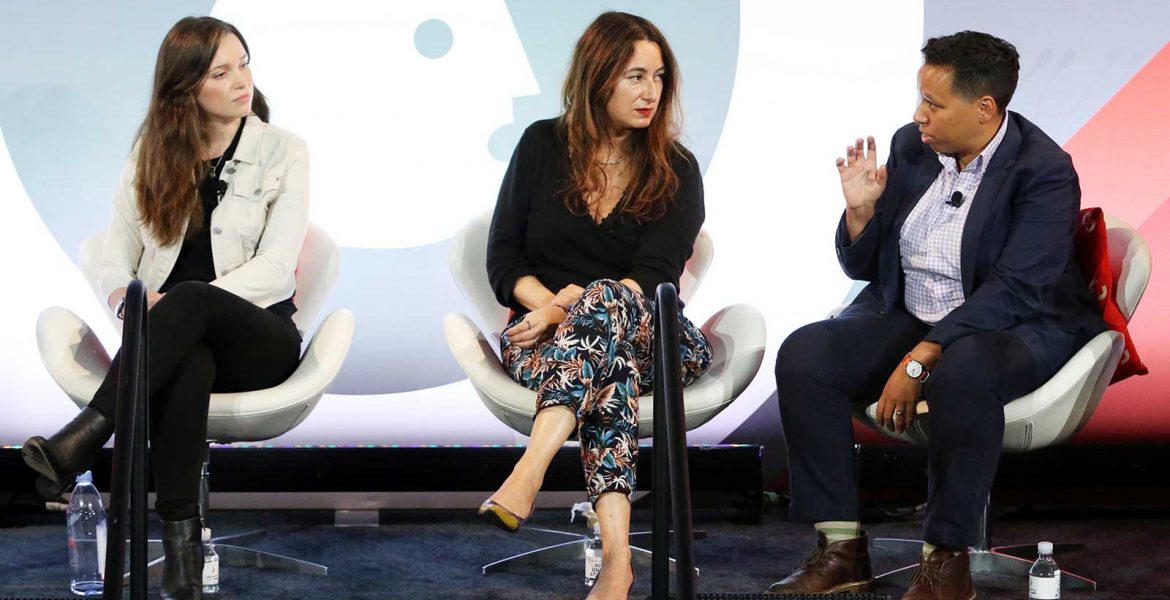Moderator Molly DeWolf Swenson began the session “Courage in the Face of Controversy” by asking the audience to raise their hand if they think we are in a controversial, polarizing time. Not surprisingly, almost everyone’s hand in the room shot up. One person even put up two.
While it might be clear that the time we live in is highly politicized and contentious, the role and responsibilities of brands in this environment is more complicated. The panel featuring Lydia Polgreen, Editor-in-Chief of HuffPost, B. Bonin Bough, Marketing Mogul and Host at Cleveland Hustles, Jordan Hewson, Founder and CEO of Speakable and Chrysi Philalithes, Chief Digital Officer at (RED), discussed when and how companies should act when it comes to controversial issues.
The panelists all agreed that the stakes of consumption are higher in today’s world because consumption has become so closely tied to identity. While it’s true that millennials are consuming less in their daily lives, the morals around companies and products are becoming more important to them. Seventy-five percent of millennials will spend more money on brands that align with their ideals and values.
So, when it comes to brands, taking a stance on social issues can be a smart marketing strategy. But it has to be done carefully and in a way, that feels authentic to the brand or else it can easily and devastatingly backfire.
Take the recent Pepsi ad featuring Kendall Jenner. B. Bonin Boughs brought this up during the panel as an example of how companies really need to think critically about how they comment on controversial issues. Just having a seemingly positive message isn’t enough.
“The goal was to say something larger about society and the intent was positive,” Boughs said. “But the execution definitely went awry.”
To most consumers, the whole thing felt gimmicky and oversimplified, like a disingenuous use of Black Lives Matter and protest culture to sell their product. Did Pepsi overstep their reach?
This may come down to a question of brand permission, as Lydia Polgreen said. Companies need to consider what are the spaces their consumers and audiences expect them to be in and then deliver when consumers want them to speak up.
“It’s delicate work,” Polgreen said. “But we also need brand courage.”
According to Jordan Hewson, a company that weighed in on social issues in a smart and effective way was Dove with their Real Women campaign which advocated for women’s rights. The effort felt effective and natural because it matched their product and the ideals that women and girls associate with their brand. In short, the leap from product to political wasn’t negatively jarring to audiences.
Polgreen pointed to the recent Heineken ads where strangers with differing political views were paired to talk to one another over a beer. She thought this was another example of a successful campaign that sought to say something bigger about our polarized society.
“It worked because that’s how people use the product,” Polgreen said. “Over a beer people loosen up, get to know one another, have more open conversations.”
As brands continue to become more associated with people’s identity and a part of their everyday lives, companies will have to make the decision as to where they want to stand when it comes to controversial issues that matter to their customers and are relevant to their product.
“Sitting on the sidelines really isn’t an option anymore,” Philalithes said. “Consumers will reward the companies that do good and punish the ones that don’t, the ones that stay silent.”

